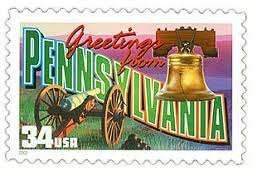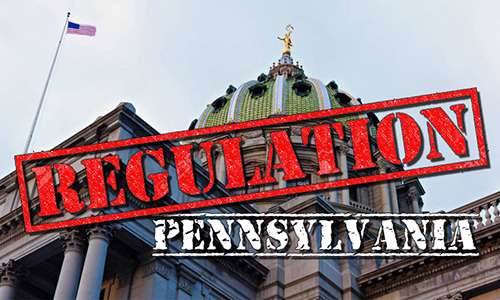Finally! Pennsylvania Legislature Passes Online Gambling Bill
I just fell out of my chair.* The Pennsylvania legislature has approved a bill to legalize online gambling. After so many failed efforts from a dysfunctional group of lawmakers who have been unable to agree on a budget, it has happened. Hell, my colleague Haley Hintze even wrote an article entitled, “Pennsylvania Budget Stalemate Cripples 2017 Online Gambling Hopes” less than three weeks ago. But this morning, the Pennsylvania House passed HB 271 by a 109-72 vote the day after the Senate did the same, 31-19.
The bill will now go to the desk of Governor Tom Wolf, who is expected to sign it into law.
“Pennsylvania made the right decision today,” said John Pappas, executive director of PPA, in a press release. “This is a major victory for consumers who, for years, have asked the state to step up and provide meaningful protections. The iGaming law will also help create new growth opportunities for the Commonwealth’s bricks and mortar casinos while providing needed revenue for the state budget.”
 The legislation legalizes online casino table games like blackjack, online poker, and online slots. It also authorizes daily fantasy sports, online lottery ticket sales, tablet gaming lounges at airports, video gaming terminals (think video slots or video poker) at qualified truck stops, and as many as ten satellite casinos.
The legislation legalizes online casino table games like blackjack, online poker, and online slots. It also authorizes daily fantasy sports, online lottery ticket sales, tablet gaming lounges at airports, video gaming terminals (think video slots or video poker) at qualified truck stops, and as many as ten satellite casinos.
The twelve currently licensed casinos in Pennsylvania will have priority when applying for online gaming licenses. 120 days after the bill becomes law, “qualified” operators not among the twelve casinos will be allowed to apply if there are any licenses that remain unclaimed.
This is all very exciting, but there is one dark cloud hanging over the bill: taxes and licensing fees. The bill imposes a crazy 54 percent tax on internet slots gross gaming revenue – 52 percent state tax and 2 percent local tax. That tax alone will likely keep some operators away, as there is no way they can be profitable.
In New Jersey, with much more reasonable tax rate of 17.5 percent, operators only make a few cents per dollar on internet slots after factoring in other expenses like payment processing and employee salaries. With a tax rate three times higher, it would be virtually impossible for Pennsylvania operators to profit on slots.
Some lawmakers think that online operators should be able to handle the 54 percent tax because it is the same as what is imposed on brick-and-mortar casinos, but they are ignoring other revenue streams the casinos enjoy, like restaurants, hotel, and shopping.
In June, Eric Schippers, spokesman for the Hollywood Casino at Penn National Race Course, told The Morning Call, “It’s clear to me that they don’t have a full understanding of what it takes to operate an iGaming operation.”
The tax rate for online poker and online table games is much more reasonable: 14 percent plus the 2 percent local tax.
Then there are the fees just to apply for a license. The Pennsylvania bill has divided online gaming into three parts: poker, table/casino games, and slots. Operators can apply for one, two, or all three licenses at a price of $4 million each. If they apply for all three within the first 90 days, they will receive a bundle discount (as my cable operator would call it, the “Triple Play!”) and will pay $10 million total.
The operators who are not among the dozen Pennsylvania casinos who, as previously mentioned, would be able to apply for licenses after 120 days if there are licenses left over, would not receive a discount. It would be $4 million for each license.
This price is also seen as way too steep by those in the industry. Again in June, when the previous iteration of the bill set the license application fee at $5 million, Schippers told The Morning Call, “If this bill passes as is, you’re going to hear crickets, because no casino is going to buy a license. It’s 24-hour liquor sales all over again.”
He is referring to a liquor law passed in 2016 that allowed casinos to buy a $1 million license in order to sell alcohol 24-hours a day. Without it, they couldn’t sell it from 2:00am to 6:00am. Nobody applied for the license because it wasn’t worth that much money to sell alcohol at such low traffic hours.
It remains to be seen if the tax rate and fees will be changed before the bill becomes law, but the Governor could just give the legislation his autograph as is and that’s it. Fortunately for poker fans, the taxes won’t be a problem for poker sites and operators may be ok with a one-time application fee (though they might not be, either). The bill also allows for interstate compacts and now that neighboring New Jersey has finally joined up with Nevada and Delaware, it would not be surprising at all if Pennsylvania quickly teamed up with those states, as well, to create larger player pools.
*Disclaimer: I am sitting in bed right now.



















“TSG” Stars Group is big winner from this